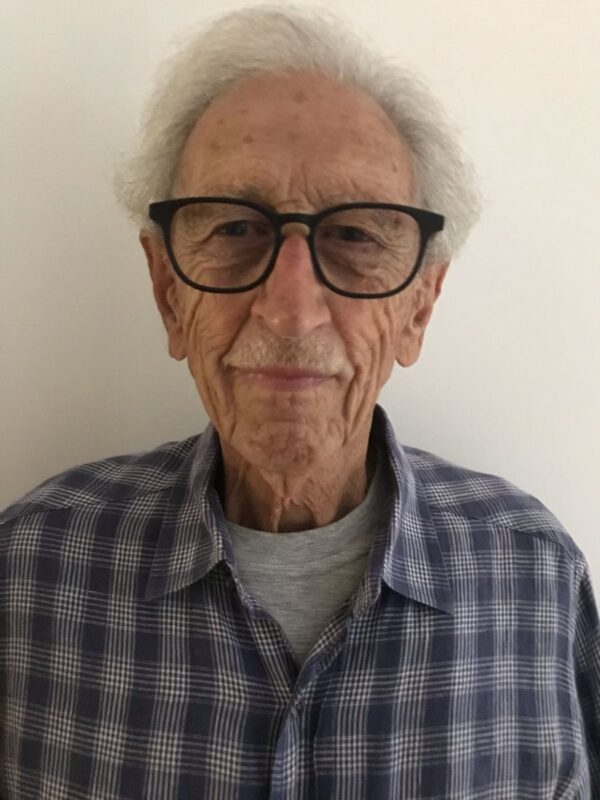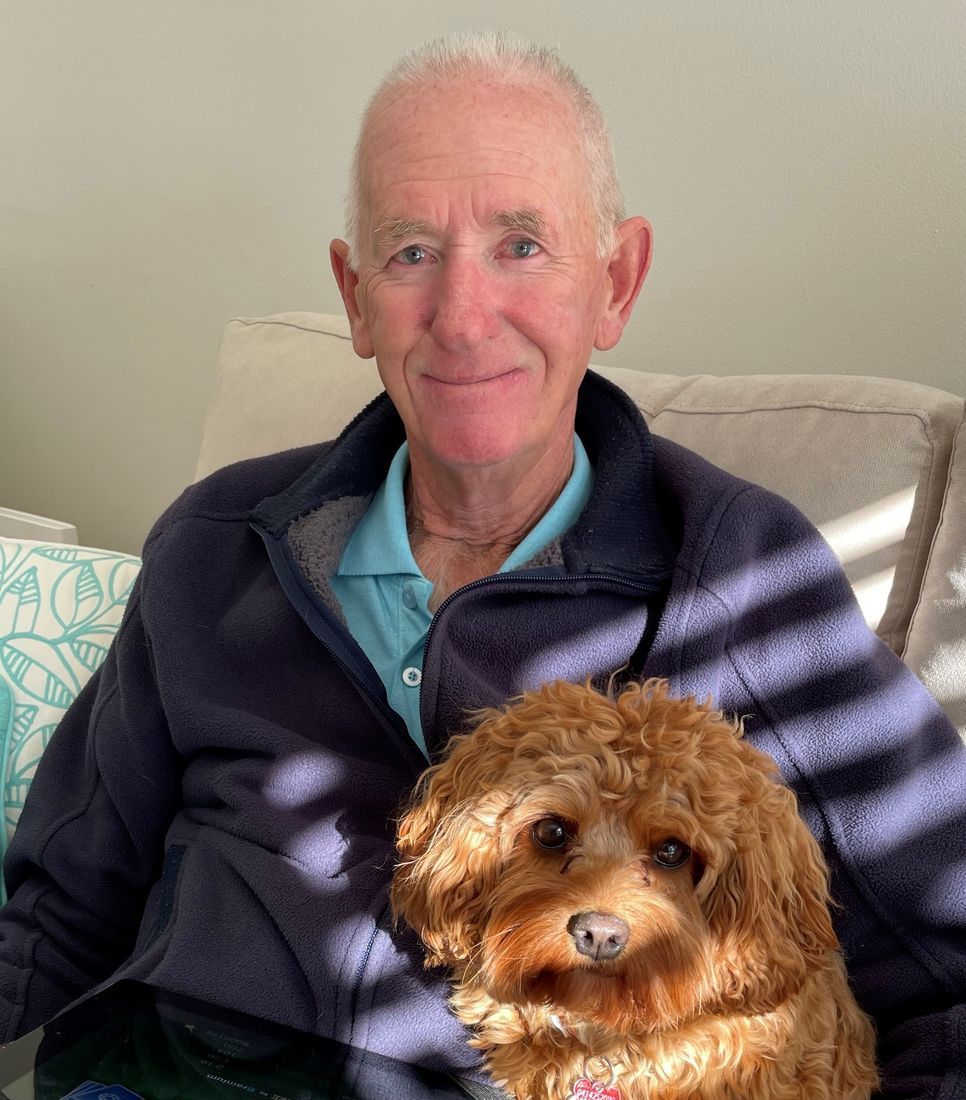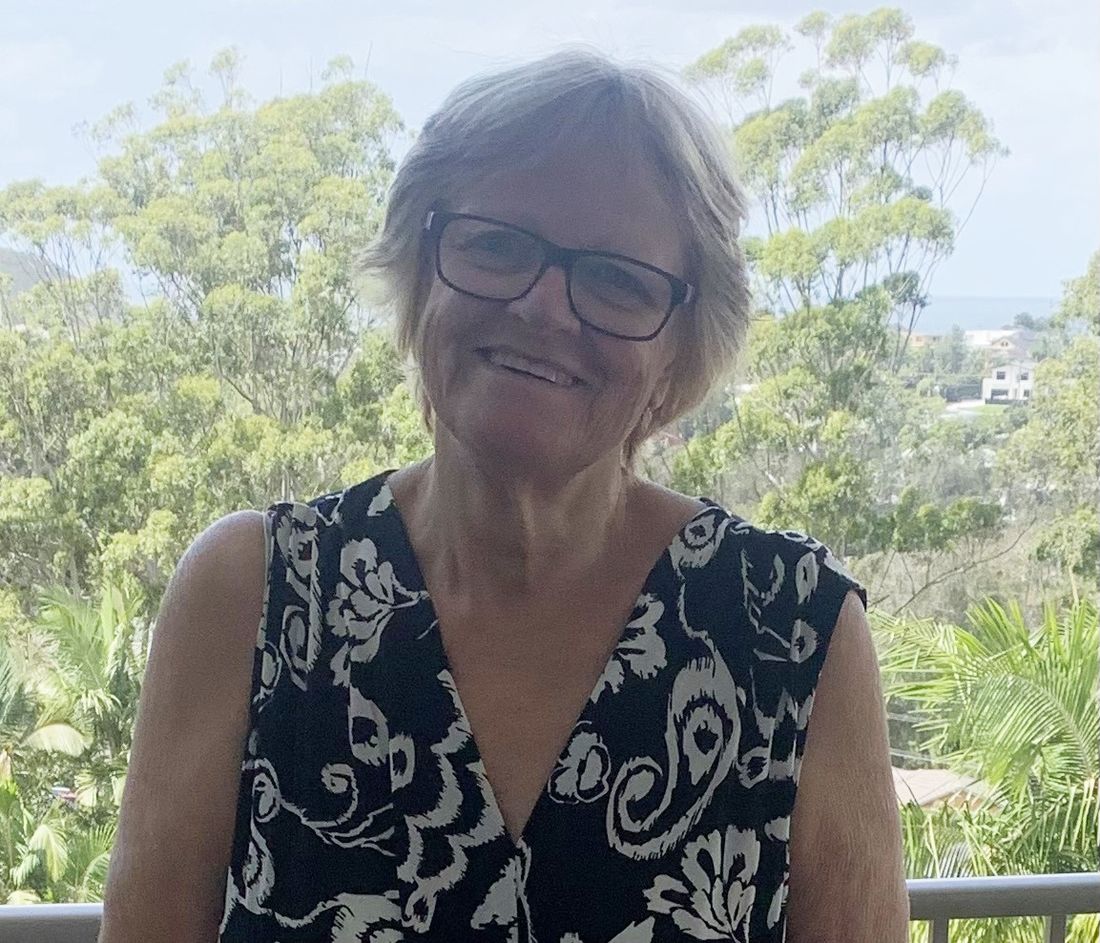What is the Clinical Trial Experience?
Deciding to take part in a clinical trial is a very personal decision and therefore people participate for a variety of reasons.
Healthy volunteers say they participate to help others and to contribute to a greater understanding of their disease, conditions, and treatments. Participants with an illness or disease also participate to help others, as well as to possibly gain access to innovative treatments and to have the additional care and attention from the clinical trial staff.
The following are some personal stories from those living with pulmonary fibrosis about participating in clinical trials and how they got involved.
Ralph's Story
While undergoing a routine check of my heart pacemaker performance in 2020, my cardiac physician heard a murmur in my chest and hoped it was nothing serious. Subsequent tests at Prince of Wales Hospital and then Royal Prince Alfred (RPA) Hospital revealed Idiopathic Pulmonary Fibrosis. At that time, and still today, the main medications were Pirfenidone and Nintedanib, both of which slowed progress of this disease but were not able to cure or reverse it. Both medications can have unpleasant side effects for patients. Knowing about clinical trials through a friend’s participation in one for cancer, I enquired about IPF trials at RPA.
When asked by the RPA research group whether I would be willing to participate in a trial, I readily accepted. I commenced on my trial in June 2022. The reason for my acceptance was because of the importance and benefit of developing improved treatment pathways for IPF patients which can lead to better outcomes.

The trial I was enrolled in was sponsored by the company that produces Pirfenidone. It was not testing a new drug but testing a different delivery method of Pirfenidone. Instead of a tablet, a ventilator is inhaled directly into the lungs thereby attempting to avoid unpleasant side-effects. The trial is to test the ventilator system and to determine the strength level of the Pirfenidone to use.
My twice daily routine is to mix two phials and breathe in deeply by mouth for about 12 minutes and then wash up the ventilator. The whole procedure takes 25 minutes twice daily. I visit RPA Hospital every 3 months to have blood tests, Forced Lung Volume test, my chest listened to, and to receive a new supply of medication and ventilators.
A major unexpected benefit for me of participating in the trial was that on one visit to RPA Hospital, the pulmonary physician noted that she believed I had heart failure which was contributing to fluid in the lungs. This meant that my left heart ventricle was not beating synchronously with my right ventricle. She communicated this to my cardiac physician. As a result, my cardiac surgeon replaced my pacemaker, and a third lead was added across to my left ventricle. By inserting a third lead to the left ventricle, it improved my heart efficiency.
My lung function seems otherwise stable after 2 years and I am not aware of any side-effects. I want to comment that I have not received any personal feedback from having participated in the trial and I guess the trial is determining the results and looking at the outcomes of many participants including those overseas. So far, I have read some initial findings of the trial from the internet. It seems as though the different delivery method does result in less side-effects, whilst at the same time slowing progress of the disease. One hopes this means that Pirfenidone delivered by ventilator might become accepted by health authorities for general use soon.
For my part, I want to state that I feel very fortunate that I am on this particular trial.
Bob's Story
My name is Bob – I am a retired (2008) schoolteacher. Here is my story.
I presented to my GP in April 2014 with a persistent cough that would not go away. After some scans etc, the GP diagnosed me with Pulmonary Fibrosis, and referred me to a lung specialist. Later on, after my diagnosis, during another visit to the GP, she told me that her own father had had PF, so I guess she was suspicious of my symptoms from the start. Interestingly, the persistent cough eventually disappeared of its own accord; but if it hadn’t been for that cough, it may have been quite some years, before I discovered I was suffering from PF, as I had no obvious symptoms of the disease. The damage to my lungs may have been much more advanced, before I was aware that I even had a problem.

So, I went to see a lung specialist who did numerous tests on me. Eventually, together with my wife and one of our sons in attendance, the lung specialist told us, in her rooms, that the usual life expectancy for the disease was 18 months to 3 years. We were told by her that we probably should look at getting our affairs in order. Needless to say, this all came as, to say the least, a very confronting and upsetting shock. We looked online, and, there too, the common theme seemed to be a life expectancy of around 3 years. My wife and I started looking at selling our house and moving to a unit. Family and friends were all very upset. No treatment options were available to me, at this point.
Eventually we found our way to the lung clinic at Royal Prince Alfred Hospital (RPA) for another opinion. From that time on, with Prof Tamera Corte taking charge, everything changed. Yes, it was confirmed I had IPF, but Prof Corte basically said that there were treatment options available to me. In early 2017, there was a new drug trial for Nintedanib about to start, and she offered me the opportunity to take part. The incentive was that, at the conclusion of the trial, I could continue on the drug long-term. I agreed to take part in the drug trial for 2 reasons. Yes, there was a hope that the drug would help to slow down the progression of the disease for me, but equally as important to me was the fact that I wanted to give something back to the RPA medical staff who had taken such good care of me for a long time.
Ten years on from my initial diagnosis, I am very fortunately in good health still, able to lead a normal life, stay in our home, and continue to enjoy the company of family and friends. I am still on the drug Nintedanib. There have been some downsides. I have lost around 20 kilos in weight – I was well overweight to start with though! One of the common side effects of the drug is constant diarrhea, and I have had that since I started taking it. I figure this is a small price to pay for still being in generally good health.
I agreed to take part in another trial in 2023, again because I wanted to give something back. Unfortunately, this new drug had more severe effects and my diarrhea and weight loss increased, to a serious level. On doctor’s advice, it was suggested I leave that trial.
I will still attend RPA for regular checks on my condition and offer myself when I can to be a help in their research into the disease. I would encourage anyone with PF to do the same, if for no other reason than by taking part in these trials/research, you are being constantly monitored and tested. And, who knows, the drug being trialed, may end up being a saviour for other future sufferers of IPF!
Deb's Story
Clinical trial involvement is a positive aspect of managing the impact of a diagnosis of Idiopathic Pulmonary Fibrosis (IPF) in my experience.
In 2019 an x-ray of my ribs after a fall showed an incidental finding of lung spots that were further investigated and led to my diagnosis of IPF. I had never heard of the disease and the shock was large! My immediate response was devastation as “Dr Google” did not read well. Further exploration of pulmonary fibrosis included Lung Foundation website information which had a section on clinical trials. Hope!
The possibility of involvement in clinical trials made a difference to my thinking and behaviour. At Royal Prince Alfred Hospital Sydney, I talked about clinical trials and was offered participation in a Phase 2 double blind trial. Not having any prior knowledge about clinical trials (except they offered hope) was a bit scary because so many random questions popped into my mind, including the jargon – “Phase 2”, placebo etc was just the start!

My other questions included:
- Could it make me better +/- worse?
- Am I suitable?
- How will I benefit?
- What do I have to do?
- What will it cost?
- Will I get the results?
- What will my family and friends think?
- What if I change my mind?
- How will I get to appointments?
Having the confidence to write my questions down and ask the nurses and doctors for information was significant in helping me make the decision to participate. There is a reality to face that there may be no personal benefit from participating, and that it will give no answers. I wrote down the responses to my questions and that eliminated my concerns. I have been part of 3 trials and hope to be eligible for more in the future.
My experience of trial participation had several phases. There is a screening process to see if you meet the criteria set by the sponsors. This involves lung function tests, 6-minute walks test, HRCT scan of lungs, blood samples, urine samples and vital signs recorded. Eligibility was established and at the first appointment the process was fully explained and my signed agreement was checked. Medication was taken with supervision, and I was monitored for any response. Screening steps were repeated and follow up appointments organised. Appointments at RPA were monthly during each of the trials and the process of each visit was similar. The HRCT scans were only at the screening and then at the completion of the trial. During the trial I learned about FVC, DLCO, oxygen saturation and monitored my weight. A questionnaire was given to see how breathless I am, how the lung disease impacts my life and performing tasks, and how much I cough. Because these were being measured, it actually made me exercise more, improve my diet and plan positive experiences to keep my spirit high. The final phase, when the clinical trial finishes, was a time of reflection that I found weird because you don’t actually know the final outcome and what it could mean for IPF patients in the future. You do know that the research may benefit the future actions and management of the disease.
As a result of clinical trial participation, the benefits I see include:
- contribution to medical knowledge of pulmonary fibrosis, particularly IPF
- raised awareness and advocacy for research about lung disease
- increased monitoring of my own disease progression
- inspiration to build on self-care of better diet and exercise
- mental health and general well-being have been maintained throughout the process
My gratitude for the research teams and sponsors has grown along with the desire to advocate for future research and investigations about pulmonary fibrosis, especially IPF. The diversity of areas that can benefit from research data provides real hope towards finding a cure for those currently living with pulmonary fibrosis, better diagnosis in early stages and ways of managing the progression of this disease.
If you are offered the opportunity to join a clinical trial team, my advice is to embrace it enthusiastically, write down every question and then reap the reward of being a human contributor with personal fringe benefits.
